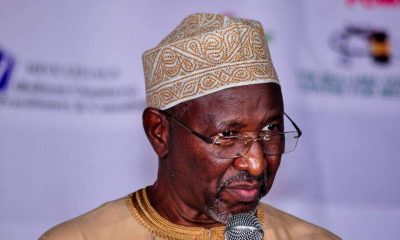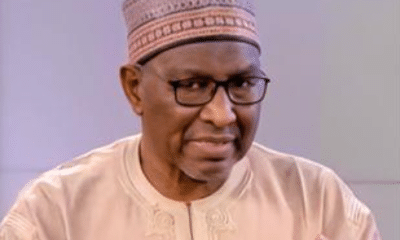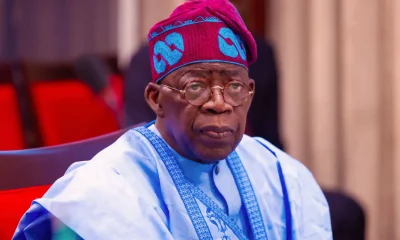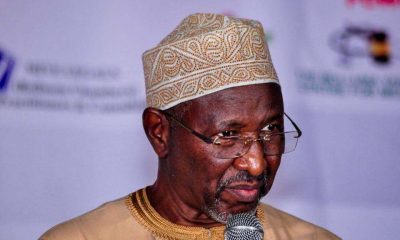Nigeria News
Niger Delta Leaders Slam Bugaje For 78% North Oil Ownership Statement
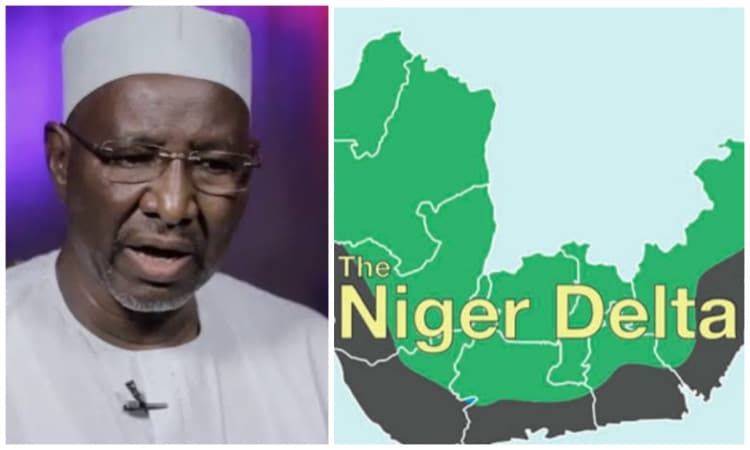
Former presidential aide Dr. Usman Bugaje faced backlash from leaders and stakeholders in the South-South for his statement suggesting that the North holds 78 percent of Nigeria’s crude oil.
Naija News recalls that Bugaje, in a recent interview with Vanguard, asserted that given the North’s ownership of 78 percent of Nigeria’s landmass, the area extending into the sea, where oil is extracted, rightfully belongs to the region.
His words: “The 78 per cent of whatever mileage that gets into the sea can, therefore, be claimed because 78 per cent of landmass belongs to the north, which is in majority. That is the argument, if they are not satisfied with this ownership, they can go to the National Assembly requesting a change in the constitution. That way, they can make the resources wherever it is found that of the state.”
In response, the Chairman of the Board of Trustees of Community Development Committees (CDC) in the oil-producing communities of the Niger Delta, Elder Joeseph Amabakederimo, former member representing Oron federal constituency and ex-speaker of the Akwa Ibom State House of Assembly, Peter Umoh, along with Uyo-based lawyer, human rights, and development activist, Mfon Peters, who spoke to Vanguard, collectively dismissed Bugaje’s remarks as uninformed.
In their assessment, veteran journalist and opinion leader in Edo State, Tony Abolo, and Bayelsa State-based conservationist, Morris Alagoa, branded Bugaje as a “confusionist.”
Elder Joseph Ambakederimo rebuked Bugaje’s comments, calling them nonsensical and urging him to refrain from speaking if he has nothing constructive to say.
He challenged Bugaje to demand transparency regarding revenue from gold extraction in the North, paralleling it with the South-South’s ownership claims over oil.
Ambakederimo criticized the North for not utilizing gold revenue during times of low oil production and warned against inciting violence. He called for the implementation of true federalism and vowed to advocate vigorously for fiscal federalism.
A former member representing Oron federal constituency, Peter Umoh, dismissed Bugaje’s remarks, labelling him as an illiterate who lacks knowledge and does not belong in the 21st century.
Umoh questioned Bugaje’s Nigerian citizenship, suggesting that some individuals from the North claim to be Nigerians despite having origins outside the country.
He advised Nigerians to disregard Bugaje’s assertions and encouraged Bugaje to pursue further education.
Similarly, a lawyer based in Uyo and an advocate for good governance, Mfon Peters, criticized Bugaje for spreading misinformation and lacking data to support his claims.
Peters emphasized the elementary principle of law that whoever owns the land also owns everything on and underneath it.
He highlighted the need for Bugaje to understand the legal perspective before making such statements.
Peters pointed out the inconsistency in arguments regarding ownership of crude oil and stressed the importance of a true federal system where each region manages its natural resources. He called for the restructuring of Nigeria to address these issues effectively.
In his reaction, a veteran journalist and influential figure in Edo State, Tony Abolo, dismissed Bugaje’s argument as absurd and driven by political sentiments.
Abolo emphasized the importance of scientific evidence, particularly seismic data acquisition, in determining the location of oil reservoirs. He questioned Bugaje’s assertion that landmass equates to ownership of oil, pointing out historical instances where countries did not claim territories due to lack of oil.
Abolo criticized the neglect of areas affected by oil prospecting and degradation and highlighted the mismanagement of resources in the North.
He urged Bugaje to focus on utilizing landmass for productive purposes such as agriculture, industries, or urban development instead of rehashing outdated arguments about ownership based on landmass.
Lastly, an environmentalist from Bayelsa State, Morris Alagoa, lamented the lack of true federalism in Nigeria and criticized the exploitation of resources in the Niger Delta by the central government.
He highlighted the unfairness of laws that favor resource extraction in the North and emphasized the physical possession of resources by the people of the Niger Delta.
Alagoa underscored the negative environmental impact of the oil industry on the region and called for a limit to greed in the interest of peace.

